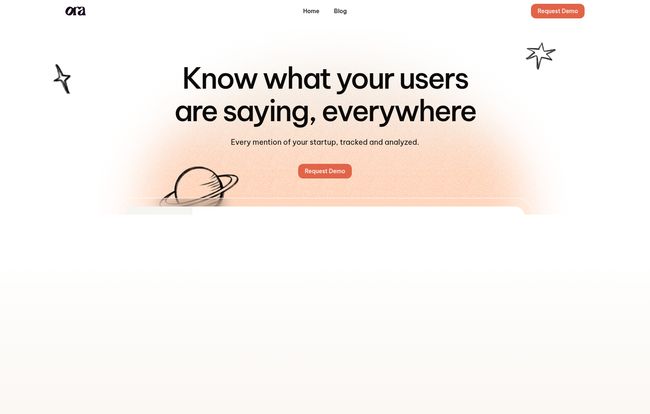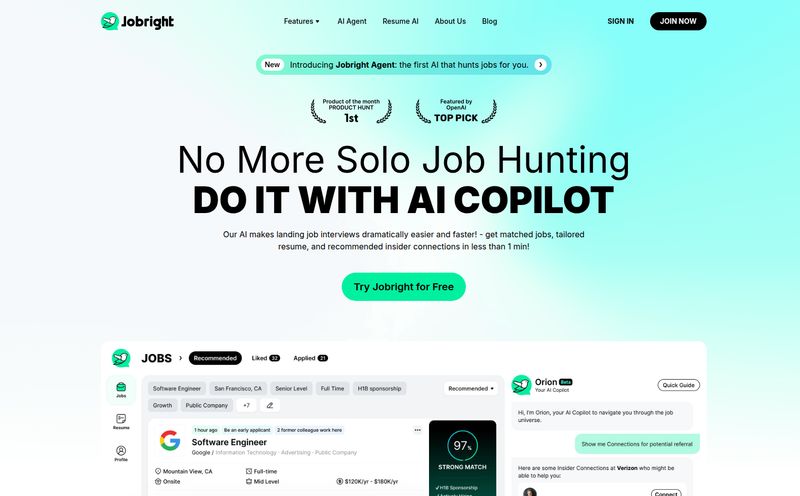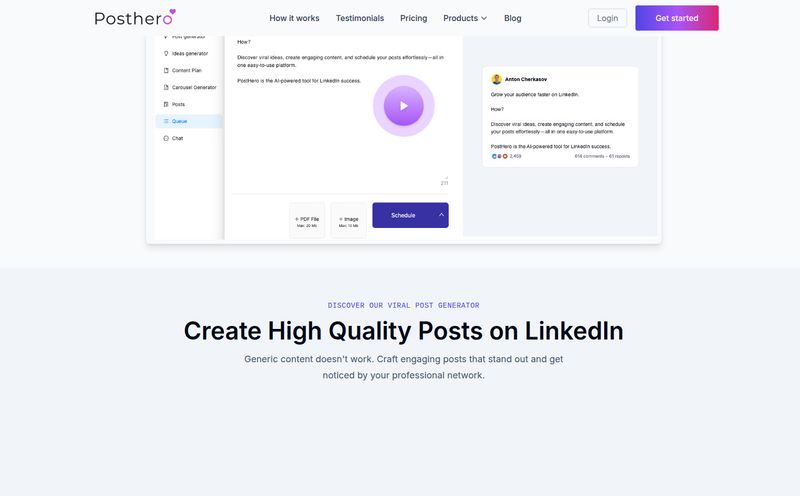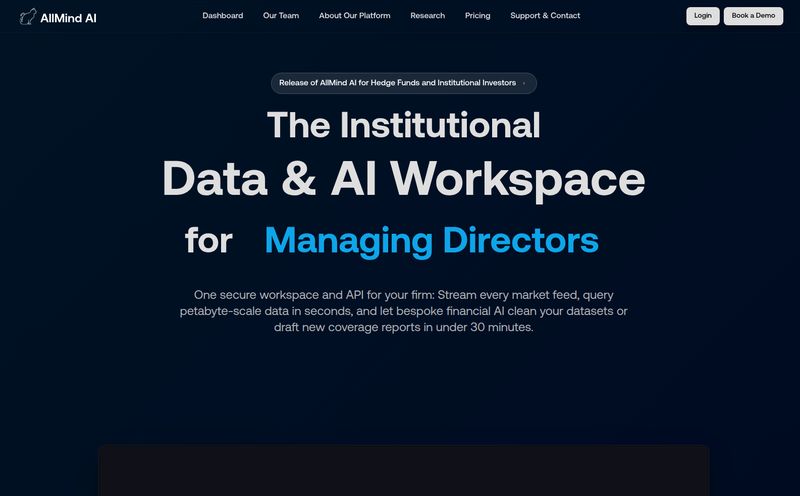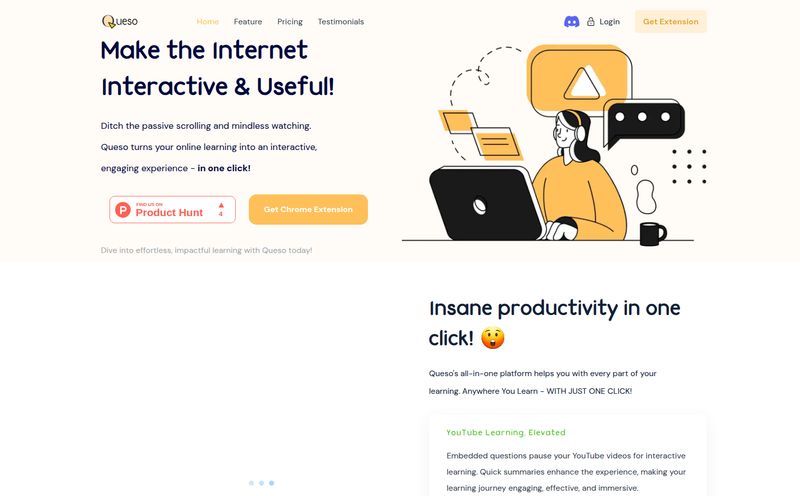We’ve all been there. You're heads-down, building your product, writing code, or crafting the perfect marketing campaign. You feel like you're on top of the world. Then, you stumble upon a week-old Reddit thread where a potential power user was begging for a feature you secretly shipped last month. Ouch. Or worse, a potential customer is screaming in frustration about your competitor on Twitter, and another, savvier brand swoops in to save the day. That one stings.
The internet is a noisy place. Keeping track of every conversation about your brand—the good, the bad, and the ugly—can feel like trying to drink from a firehose. For years, we've relied on clunky media monitoring tools with complex boolean searches that felt like you needed a computer science degree to set up. But what if there was a better way? What if you had an AI co-pilot, whispering the important stuff right in your ear, in real-time?
That’s the promise of a tool I've been looking at recently: Ora Customer Intelligence. It popped up on my radar, and its minimalist website and bold claim—"Know what your users are saying, everywhere"—definitely got my attention.
So, What is Ora Customer Intelligence, Really?
Okay, let's cut through the marketing jargon. At its heart, Ora is an AI-powered listening tool designed specifically for the hustle of a startup. It’s not trying to be some bloated, all-in-one enterprise suite. It aims to do a few things exceptionally well. It acts like a team of digital scouts, constantly scanning the most important corners of the internet for any mention of your company, your products, or even your competitors.
It automatically tracks conversations on platforms that actually matter for tech and SaaS companies: Twitter (X), Reddit, HackerNews, and LinkedIn. Instead of just giving you a raw feed of mentions, its AI gets to work, analyzing the chatter to spot trends, frustrations, and opportunities. Think of it as turning the chaotic white noise of online conversation into a clear, actionable signal. No more guesswork. Just listening.
Stop Guessing, Start Listening: The Core Features
I’ve seen a lot of tools come and go, and I'm always skeptical. But Ora’s feature set seems incredibly focused on what a growing business actually needs. It’s not about vanity metrics; it’s about actionable intelligence.
Real-Time Mention Tracking Across the Web
The “real-time” part is what really matters here. In today’s world, a 24-hour delay is an eternity. A potential customer complaining on HackerNews needs a response in minutes, not days. Ora’s ability to catch these mentions as they happen is, for my money, its most foundational feature. It gives you the chance to be proactive rather than reactive. You can jump into a conversation, answer a question, or solve a problem before it snowballs. This is how you build a loyal following, one interaction at a time.
Your AI-Powered Feedback Aggregator
Getting a firehose of mentions is one thing; making sense of it is another. This is where the AI co-pilot concept comes into play. Ora doesn't just show you that you were mentioned; it tries to understand the why. Is there a spike in users requesting a certain integration? Are people suddenly confused by a recent UI change? By aggregating and analyzing feedback, it helps you spot trends you might otherwise miss. I will say, the website is a little light on the specifics of how deep the sentiment analysis goes, which is a fair question. But the idea of an automated system connecting the dots from scattered user comments is seriously powerful.
The Competitor Alert System: Your Secret Weapon
Honestly, this is the feature that gets me most excited. We all do competitor analysis, but it's often a manual, time-consuming process. Ora automates it. You can set it up to listen for mentions of your competitors, specifically focusing on user frustration. Imagine getting a notification right on your phone: “User on Reddit is furious about [Competitor]'s new pricing model.” That's not just data; that's a sales opportunity. It's a chance to slide into the conversation with a helpful, non-salesy comment like, “Hey, I know how frustrating that can be. We actually offer a similar service with a more flexible plan if you're ever looking to switch.” It’s a growth hack built right into the tool. A bit cheeky, maybe, but incredibly effective.
Setting Up Ora: Is It a Headache?
If you've ever wrestled with setting up alerts in legacy platforms, you know the pain of boolean logic. Crafting queries like `("my brand" OR "myproduct") AND (bug OR error OR sucks) NOT (RT OR "competing brand")` is a special kind of torture. It's a barrier to entry that keeps many small teams from even trying.
Ora seems to have thrown that out the window. One of their big selling points is an easy setup without complex queries. This is huge. It democratizes customer intelligence. It means the founder, the marketing intern, or the sole customer support rep can get it up and running quickly and start getting value immediately. This focus on simplicity is a massive plus in my book. A tool is only useful if people actually use it, and making it easy is half the battle.
The Big Question: What Does Ora Cost?
Alright, let's address the elephant in the room. If you go to Ora’s website, you won’t find a pricing page. All you’ll see is a “Request Demo” button. Now, for an experienced cynic like myself, this can sometimes be a red flag for “it’s about to get very expensive.”
However, given their focus on startups, I have a different theory. It could mean a few things:
- They are in an early stage and are still figuring out the perfect pricing model.
- They offer customized plans based on the volume of mentions or the number of keywords you want to track.
- They want to personally onboard new users to ensure they get the most out of the platform.
While the lack of transparency is a small drawback, it’s not a dealbreaker. Requesting a demo is the only way to find out for sure. My advice? Don't be shy. If the features sound like a good fit, a 15-minute demo is a small investment to find out if it fits your budget.
Who is Ora Actually For?
This isn't a tool for Coca-Cola or Nike. It's not built for massive corporations with dedicated social listening teams. In my opinion, Ora is tailor-made for:
- Early-stage SaaS founders: Who need to be intimately connected to their first 1,000 users.
- Indie Hackers and Solopreneurs: Who need to be their own marketing, sales, and support departments.
- Scrappy Marketing Managers: At growing startups who are looking for an edge over larger, slower competitors.
- Product Managers: Who want a direct, unfiltered pipeline of user feedback to inform their roadmap.
If you're in a position where every single customer conversation matters and you have the agility to act on insights quickly, Ora could be a perfect fit.
Frequently Asked Questions about Ora
What platforms does Ora monitor?
Currently, Ora keeps a close watch on the big four for tech and startup chatter: Twitter (or X, whatever we're calling it this week), Reddit, HackerNews, and LinkedIn. This is a solid starting point that covers a huge chunk of relevant conversations.
How fast are the alerts? Is it really real-time?
Based on their messaging, the goal is real-time. This means you should get notified within minutes of a mention going live, allowing for timely engagement. This is a far cry from the daily or weekly reports some other services provide.
Is Ora difficult to set up?
No, and that's one of its main advantages. Ora specifically highlights that it does away with the need for complex boolean logic or technical queries. The goal is a simple, intuitive setup process so you can start tracking mentions right away.
Can I track more than just my own brand name?
Absolutely. One of the most powerful features is the competitor alert system. You can and should set up tracking for your main competitors to monitor their customers' feedback, especially their complaints!
How do I get access to Ora or see the pricing?
As of now, access is handled through a demo request on their website. This is also how you'll get information on their pricing structure, which is likely customized to your needs.
My Final Thoughts
In a world overflowing with data, the real challenge isn’t getting more of it; it's finding the right information at the right time. Ora Customer Intelligence seems to understand this perfectly. It’s a focused, smart tool that’s less about overwhelming you with charts and more about delivering timely, actionable opportunities directly to you.
The ability to proactively engage with potential customers and poach unhappy competitor users is a game-changer for any growing business. While I'd love to see a public pricing page, the targeted feature set and emphasis on simplicity make it a compelling platform. If you're a startup founder or marketer who's tired of feeling like you're always one step behind the conversation, Ora is definitely worth a look. Go request that demo. What have you got to lose?
